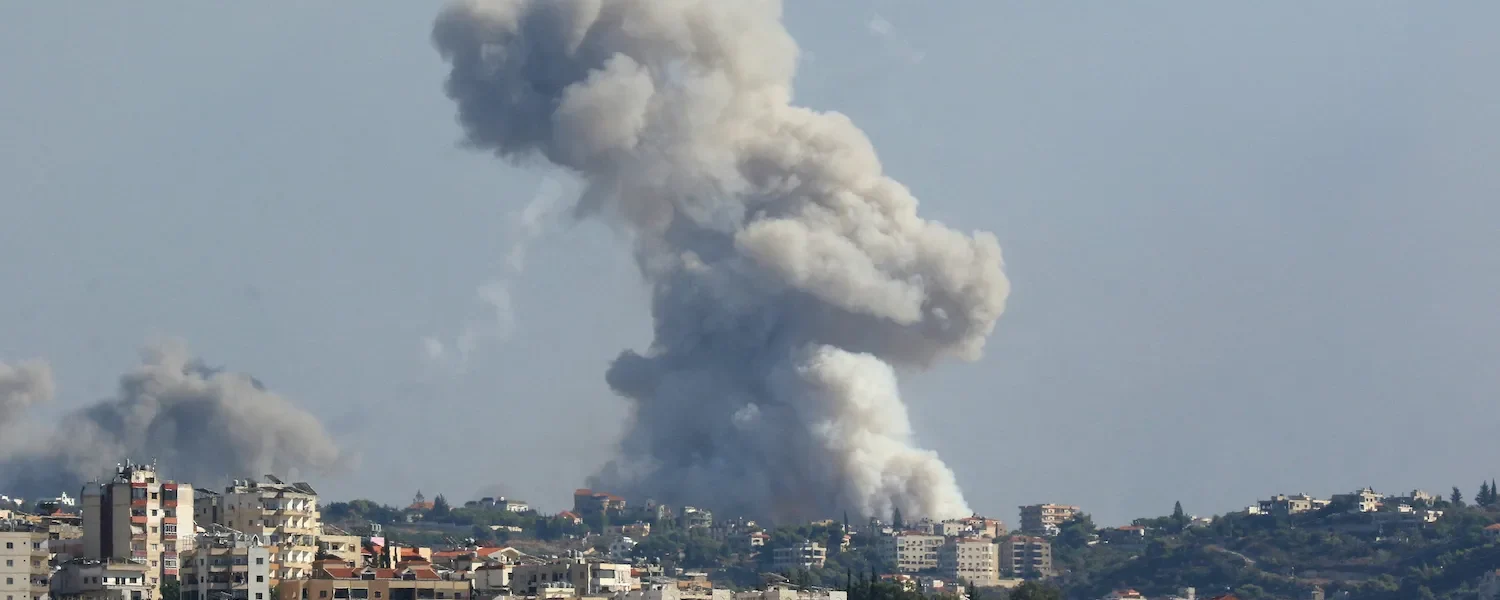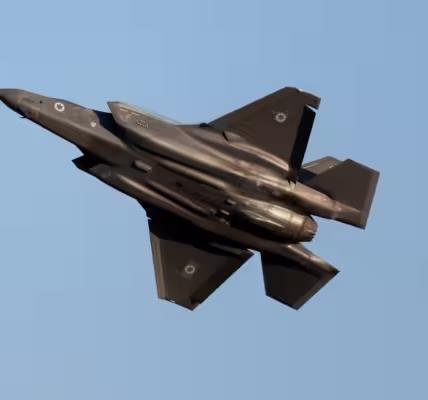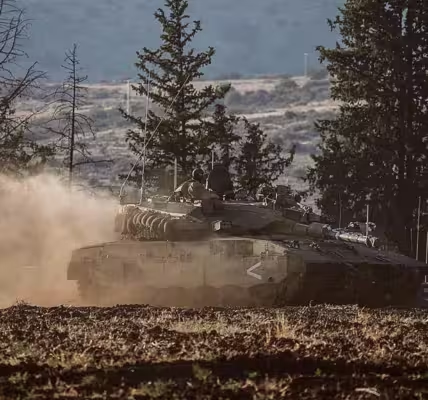
Israel has sustained its first casualties since the launch of its cross-border incursion into southern Lebanon. Eight soldiers have been killed in battles with Hezbollah and, tragically, they are unlikely to be the last casualties of this conflict.
Captain Eitan Itzhak Oster, 22, a squad commander in the ‘Egoz’, an elite commando unit specialising in guerrilla warfare, was killed in what was reported to be an ambush by Hezbollah fighters in a village in southern Lebanon. Other Israeli Defence Forces (IDF) personnel killed in clashes with Hezbollah on Wednesday include four members of a commando unit, two soldiers serving with a reconnaissance squad, and another who was part of the engineering corps. The IDF has named the soldiers as Captain Harel Ettinger, Captain Itai Ariel Giat, Major Noam Barzilai, Major Or Mansour, Major Nezer Itkin, Sergeant Alamkan Tarfa, and Sergeant Ido Breuer.
As one former senior British army officer told me in Afghanistan in 2006 – the enemy always has a vote
These soldiers were killed in a battle with Hezbollah operatives in a southern Lebanon village, according to a report in the Times of Israel. Five other soldiers were seriously wounded. One survivor of a Hezbollah ambush said everyone in his unit had been injured but they had managed to withdraw.
Even for Israel, a country so used to war and sacrifice, losses so early on in a campaign will come as a shock. The eight deaths also demonstrate that fighting in the coming weeks and months will be costly and difficult. Hezbollah will want to make the IDF pay in blood for every inch of their soil they are forced to surrender in the hope that Prime Minister Netanyahu may decide that the sacrifice being asked is too much.
Southern Lebanon represents a different strategic problem to Gaza, where the IDF was able to target Hamas strongholds with air, drone and artillery strikes before Israeli troops moved in on foot in a series of clearing up operations. Even then, with all of the military hardware the IDF has at disposal, the war in Gaza has dragged on and the casualty rate increases daily for both the civilian population and the Israeli army.
Geographically, southern Lebanon poses a different threat. It is a hilly area, dotted with abandoned villages and criss-crossed with a vast network of tunnels – all of which make it the perfect ground for snipers, ambushes and the use of improvised explosive devices, designed to maim and not kill.
Israel possesses one of the world’s most effective and highly capable fighting forces and the country’s intelligence network is second to none – exactly what you would expect from a country which has more or less been fighting for its survival for the past 70 years.
But as one former senior British Army officer told me in Afghanistan in 2006 – the enemy always has a vote. By this he meant that no matter how well trained and equipped a fighting force, the enemy will always play a role in how a plan unfolds.
The Taliban were poorly trained and ill equipped – their weapon of choice was an ageing AK-47 assault rifle taken from a dead Russian soldier. They had no artillery, air power or tanks. While British troops fought in increasingly heavy and restrictive body armour and helmet, the Taliban wore traditional dress and sandals but were able to hold both the British and US forces at bay for more than ten years and inflicted thousands of casualties in doing so.
Hezbollah are infinitely better equipped, trained and possibly more motivated than the Taliban and they are fighting for what they perceive as their land. Like the Taliban, Hezbollah will also have a vote and it’s likely to be a big one.
Netanyahu’s plan in Lebanon, we are told, is a limited one – degrade Hezbollah and push it away from the border, north of the Litani river. It is anyone’s guess how long this will take and at what the cost will be in blood and treasure. But in all likelihood it will not be small.
Israel is fighting for its very survival and the West needs to ensure that it doesn’t fail, in exactly the same way that the West needs to ensure that President Vladimir Putin is not victorious in Ukraine.
We should ensure that Israel has the military hardware it needs to achieve its limited aims. If the IDF can hit Hezbollah hard and fast before withdrawing it will, hopefully, limit the number of casualties it sustains.



































































































































































































































































































